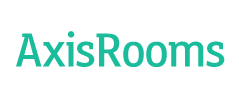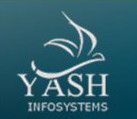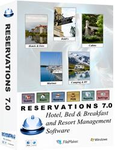What Is Hotel Management Software?
Hotel Management Software is a comprehensive digital solution that simplifies and automates numerous administrative and operational activities in a hotel setting. It has a wide range of capabilities, including reservation administration, front desk operations, inventory management, and financial reporting. One of the key purposes of Hotel Management Software is to make the reservation process easier for both guests and hotel employees.
Guests can quickly search for available rooms, book them, and even personalize their stay with add-ons like room service or spa treatments thanks to the user-friendly interface. On the other side, hotel staff can handle reservations, track availability, and monitor room occupancy in real time. Furthermore, Hotel Management Software provides solutions for managing day-to-day operations like as check-ins and outs, housekeeping, and guest questions.
These features not only increase hotel staff efficiency, but also improve the overall visitor experience by lowering wait times and ensuring quality service. Another important feature of Hotel Management Software is its inventory management capabilities. It enables hoteliers to track and manage their inventory, including rooms, amenities, and supplies, through a centralized system.
This guarantees that hotels always have the resources their customers need without overstocking or risking stockouts. Furthermore, Hotel Management Software provides financial management capabilities that allow hoteliers to monitor revenue, expenses, and generate financial reports. This provides vital information into the hotel's performance and enables educated business decisions.
In today's digital age, Hotel Management Software has integration features that enable hotels to interact with third-party platforms such as online booking sites or payment gateways. This broadens the hotel's reach and automates the booking process, increasing revenue while decreasing the likelihood of errors.
What Are The Recent Trends In Hotel Management Software?
In recent years, the hotel business has seen a significant increase in the use of technology to streamline operations and improve visitor experiences. As a result, demand for hotel management software has increased dramatically. Within this quickly changing landscape, there are a few major factors influencing the development and use of these software solutions.
1. Cloud-Based Solutions: One key trend in hotel management software is the transition to cloud-based solutions. This enables easier access, real-time upgrades, and eliminates the need for expensive hardware and maintenance. Cloud-based software also provides more scalability, making it suited for both small boutique hotels and larger hotel networks.
2. Integration Of Artificial Intelligence (AI): As AI technology advances, hotel management software is increasingly adding intelligent features like chatbots and virtual assistants to handle guest inquiries, reservations, and other duties. This not only improves operating efficiency, but also gives guests a more personalized experience.
3. Mobile-Friendly Platforms: In the digital age, visitors want to be able to access hotel services and information while on the go. This has resulted in a greater emphasis on mobile-friendly hotel management software, which enables customers to make reservations, check in, and access hotel information straight from their smartphones.
4. Data-Driven Insights: Hotel management software can now collect and analyze vast volumes of data, allowing hoteliers to make more educated decisions. This involves tracking visitor preferences, adjusting pricing methods, and projecting demand to improve inventory management.
5. Integration Of Several Systems: Rather than utilizing separate software for distinct functions, hotels are increasingly opting for all-in-one solutions that combine reservation administration, point of sale, and housekeeping into a single platform. This streamlines procedures, lowers manual errors, and boosts overall efficiency.
Benefits Of Using Hotel Management Software
Hotel management software provides several benefits to hotel owners and managers, making it an indispensable tool for effectively managing and growing their operations. This software has the potential to significantly improve a hotel's overall performance and success by streamlining processes and increasing customer happiness.
Here are some of the major advantages of adopting hotel management software.
1. Efficient Management Of Bookings And Reservations: One of the key advantages of hotel management software is its ability to automate and streamline the booking and reservation processes. This not only saves hotel staff time and effort, but it also minimizes the likelihood of overbookings and multiple bookings, resulting in improved customer service and satisfaction.
2. Centralized Management Of Operations: Hotel management software offers a centralized platform for controlling all aspects of hotel operations, such as front desk, housekeeping, inventory, accounting, and more. This reduces the need for various systems and human processes, resulting in improved efficiency, accuracy, and production.
3. Real-Time Monitoring And Reporting: Another big benefit of adopting hotel management software is the ability to track hotel performance in real time via thorough reports and analytics. This enables managers to make informed decisions and discover areas for development, resulting in increased profitability and growth.
4. Improved Customer Experience: Hotel management software enables hotel workers to give tailored and efficient services to guests, improving their entire experience. From handling guest preferences and requests to tracking service history, this software guarantees that all clients receive excellent service, which leads to increased satisfaction and loyalty.
5. Improved Revenue Management: Hotel management software has revenue management capabilities that help optimize room rates and occupancy levels to maximize income. It uses data analytics and forecasting methodologies to identify the optimal pricing plan, resulting in greater revenue and profitability for the hotel.
6. Easy Integration With Other Systems: Many hotel management software packages provide for easy integration with other systems including online booking engines, channel managers, and payment gateways. This assures a continuous flow of data and processes, reducing the possibility of errors and delays.
7. Cost And Time Savings: Hotel management software helps hotel owners and managers save time and money by automating time-consuming procedures and streamlining operations. Hotels can cut labor expenses, prevent errors, and preserve valuable time that can be devoted to other vital duties by automating more procedures.
Important Factors To Consider While Purchasing Hotel Management Software?
When it comes to choosing hotel management software, there are a few important elements to consider in order to make the best option for your company.
These factors include:
1. Features And Functionality: The first and most significant considerations are the software's features and functionality. Ensure that it has all of the tools and capabilities required to simplify operations, manage reservations, track bookings, and handle payments properly.
2. Integration: Ensure that the hotel management software integrates effectively with your existing systems and platforms. This will save you time and money in the long term while also eliminating the need for manual data entry.
3. Scalability: Your software should be able to grow alongside your business. Look for a scalable system that can meet your company's current and future requirements.
4. User-Friendly Interface: The software's interface should be straightforward and simple to explore and understand. This ensures that your employees can quickly understand and use the product effectively.
5. Cloud-Based Or On-Premise: Determine whether you choose a cloud-based or on-premises solution. Cloud-based software provides greater flexibility and accessibility, whilst on-premises software gives you more control over your data.
6. Customer Support: Think about how much customer support and training the software firm provides. A responsive and helpful support team can significantly improve the success of your software implementation.
7. Budget: When selecting hotel management software, just as with any other purchase, you should consider your budget. However, don't forgo quality for a reduced price; investing in a dependable and functional system will save you money in the long term.
8. Security: It is critical to ensure that the software includes adequate security measures to secure sensitive data, such as guest information and payment details.
9. Reviews And Recommendations: Conduct research and study feedback from other hoteliers who have used the program. They can offer significant insights and recommendations based on their own experiences.
What Are The Key Features To Look For In Hotel Management Software?
When looking for the best hotel management software to streamline your business operations, it's critical to grasp the essential features that set the software apart. These characteristics can have a significant impact on your hotel's efficiency and success, so you should carefully analyze them before making a selection.
The following are the main features to look for in hotel management software.
1. Online Booking And Reservation Management: The ability to take online bookings and handle reservations effectively is a must-have feature. Customers can quickly book rooms and services online, making the transaction more convenient for both parties.
2. Front Desk Management: The software should include a simple interface for managing front-desk activities such check-ins, check-outs, room allocations, and guest information. This will assist to decrease errors and provide a smooth check-in and check-out experience for guests.
3. Housekeeping And Maintenance: A good hotel management software should include a tool for tracking housekeeping and maintenance jobs. This involves assigning and tracking jobs, as well as monitoring room status and repair requests.
4. Point Of Sale (POS): The software should have a POS system to manage the hotel's numerous services, such as room service, restaurant, spa, and tour bookings. This will help to streamline the entire sales process and make tracking revenue and spending easier.
5. Accounting And Financial Management: An essential component for any business, the software should provide accounting and financial management features to assist with budgeting, invoicing, and tracking revenue and expenses. This will provide a clear picture of your hotel's finances and assist with decision-making.
6. Reporting And Analytics: Your hotel's software should have extensive reporting and analytics capabilities to help you monitor its performance. This involves creating reports on occupancy rates, revenue, and other key indicators, as well as offering insights to help improve operations.
7. Mobile Compatibility: In today's digital world, it is critical to have software that works with mobile devices. With mobile check-ins and mobile key choices, you will be able to manage your hotel on the road while also providing a better guest experience.
8. Integration With Other Systems: The software should be compatible with the systems you already use, such as accounting software, customer relationship management (CRM) software, or channel management tools. This will help to streamline your processes and eliminate duplicate data entering.
9. User-Friendly Design: The program should have an intuitive and user-friendly interface that is simple to use for all levels of users. This will help to shorten the learning curve and ensure efficient use of the product.
10. Customer Support: When investing in hotel management software, it's critical to select a company that provides dependable and quick customer service. This ensures that you have access to assistance when you need it and that any software issues are resolved as soon as possible.
Why Do Businesses Need Hotel Management Software?
Businesses in the hospitality business, especially those in the hotel sector, require dependable and effective hotel management software to streamline operations and improve the entire visitor experience. With the ever-increasing need for excellent customer service, hoteliers must have a system in place that can efficiently manage their day-to-day chores while freeing up their time to focus on their guests' demands.
First and foremost, excellent hotel management software allows businesses to effortlessly manage reservations and bookings. This includes real-time availability information, automated booking confirmations, and online reservation choices to meet the needs of today's guests. This not only saves time for hotel employees, but it also reduces the likelihood of overbooking and missed reservations.
Furthermore, hotel management software includes a variety of features and modules, such as front desk management, cleaning, inventory management, and accounting, all of which are essential for smooth day-to-day operations. It simplifies the management of many jobs, eliminates the need for manual record-keeping, and lowers human error, which could undermine the company's reputation.
Furthermore, with the growing popularity of online reviews and social media, maintaining a good reputation is critical for hotels. A hotel management software enables businesses to monitor and respond to reviews in a timely manner, track visitor feedback, and make required modifications to improve the overall guest experience. This can lead to great ratings and increased client loyalty.
Furthermore, hotel management software's reporting and analytics features provide organizations with real-time visibility into their performance, occupancy rates, revenue, and other key indicators. This enables them to make data-driven decisions, discover areas for development, and optimize their business operations to boost profits. In today's competitive economy, a strong online presence is essential for organizations.
Hotel management software enables hotels to offer their properties and services across several booking platforms and social media channels, enhancing visibility and reaching a larger audience. Overall, investing in hotel management software is critical for businesses to remain competitive, increase productivity, and provide a superior guest experience. With its numerous features and benefits, it is an essential tool for any hotel striving to succeed in today's fast-paced and ever-changing hospitality sector.
How Much Time Is Required To Implement Hotel Management Software?
The time required to develop hotel management software varies based on several factors, including the size of your hotel, the amount of features being introduced, and the complexity of your existing systems. On average, it takes between a few weeks and a few months to fully implement and operationalize the program. The first stage in deploying hotel management software is to determine your specific requirements and goals for the software.
This will help you identify which features and modules are required for your hotel and which may be added later. Before beginning the implementation process, you must first have a comprehensive grasp of your needs. Next, the program must be integrated with your existing systems, including your property management system (PMS), accounting software, and internet booking platforms.
This process can take some time because it involves meticulous preparation and testing to ensure a seamless and successful integration. Once the integration is complete, the software must be set to your hotel's individual operations and preferences. This includes establishing accommodation rates, defining room types and inventories, and implementing any regulations or limits.
Depending on how complex your hotel's operations are, this configuration procedure might take anything from a few weeks to a few months. During the implementation process, your employees will need to be instructed on how to utilize the new software. This training might last from a few days to a week, depending on the size of your team and the complexity of the software. The overall implementation time ranges from 4-6 weeks for smaller hotels to 3-4 months for larger, more sophisticated properties. It is critical to set aside enough time for the implementation process to ensure a successful and easy transition to the new software.
What Is The Level Of Customization Available In Hotel Management Software?
Hotel management software provides a wide range of features and tools for managing hotel operations and visitor experiences. The level of customisation available with this software is an essential feature. When contemplating acquiring hotel management software, it is critical to understand the extent of customization available to ensure that it suits your hotel's unique demands and expectations.
The extent of customisation in hotel management software varies according to the vendor and package chosen. However, most respectable software companies provide a high level of customisation to meet the unique needs of each hotel. First and foremost, hotel management software allows for feature and module customisation. This means that hotels can select the features and modules they need and modify the program accordingly.
This results in a more simplified and efficient procedure, as hotels can concentrate on the characteristics that are most important to their operations. Second, software customization includes both the interface and the user experience. Hotels can alter the software's layout and design to reflect their brand and aesthetic. This is especially useful for hotels that wish to project a consistent brand image throughout all guest encounters.
Another level of customization offered in hotel management software is the option to link with external systems. This implies that hotels can combine the software with their existing systems, such as accounting or POS systems, to ensure a smooth flow of data and information. Additionally, certain hotel management software allows for the customization of reports and analytics.
This enables hotels to generate personalized reports and obtain insights into their data based on their unique requirements and criteria. It is important to note that the extent of customization may differ based on the software supplier and package selected. As a result, it is critical to properly discuss your customized requirements with the provider before making a purchase.
Which Industries Can Benefit The Most From Hotel Management Software?
Hotel Management Software is a strong tool for streamlining and improving the operations of hotels, resorts, and other lodging facilities. With its extensive feature set, this software can help a wide range of industries that rely on maintaining and organizing their lodgings and services.
Here are the primary industries that can profit the most from hotel management software.
1. Hospitality Industry: The hospitality business, which includes hotels, resorts, and vacation rentals, is the largest user of Hotel Management Software. This software may significantly increase a hotel's overall efficiency and customer satisfaction by handling reservations and room inventories, tracking guest preferences, and streamlining check-in and check-out operations. It also offers thorough reporting and analytics to assist managers make informed decisions and enhance operations.
2. The Travel And Tourism Industry: The travel and tourist business is strongly tied to the hotel industry and can profit significantly from Hotel Management Software. This program allows tour operators, travel agencies, and tour guides to manage bookings, track itineraries, and accept online payments. Hotel Management Software, with its ability to interact with online booking platforms, can assist travel and tourism enterprises in reaching a larger audience and increasing bookings.
3. Event Management Industry: Event management firms can also profit from Hotel Management Software, particularly if they routinely handle conferences, seminars, and other events that require lodging. Event planners can use this software to manage accommodation reservations, guest lists, billing, and payments. Hotel Management Software, with its ability to schedule and manage various events, may be a useful asset for event management companies of all sizes.
4. Healthcare Industry: Hotels and resorts that serve out-of-town patients can benefit from adopting Hotel Management Software to manage their accommodations. This is especially true for medical tourism, in which patients travel to another country to receive healthcare services. This software, which can handle various reservations and room kinds, can assist healthcare facilities manage their patients' accommodations more efficiently.
5. Educational Industry: Hotel Management Software is also useful for universities, colleges, and schools that provide on-campus housing. This program can help you manage student housing, room assignments, and rental bills. It can also monitor maintenance and repair needs and generate full information on occupancy and revenue.
Conclusion
To summarize, investing in high-quality hotel management software can significantly benefit your business by streamlining processes, increasing productivity, and improving the overall guest experience. As evidenced by the many aspects described in this buyer's guide, there are numerous alternatives available on the market, each with its own distinct strengths and capabilities.
Before making a purchasing decision, you should thoroughly examine your company's needs and goals to determine which software best meets your demands. When comparing alternative choices, consider affordability, scalability, integration possibilities, and user friendliness. Furthermore, make sure to try the program using demos or free trials and receive feedback from your team members to confirm that it matches all of your requirements.
Finally, by choosing the proper hotel management software, you can streamline your operations, boost visitor satisfaction, and increase income for your business. We hope our buyer's guide has offered useful information and helped you make an informed decision to improve your hotel management skills.



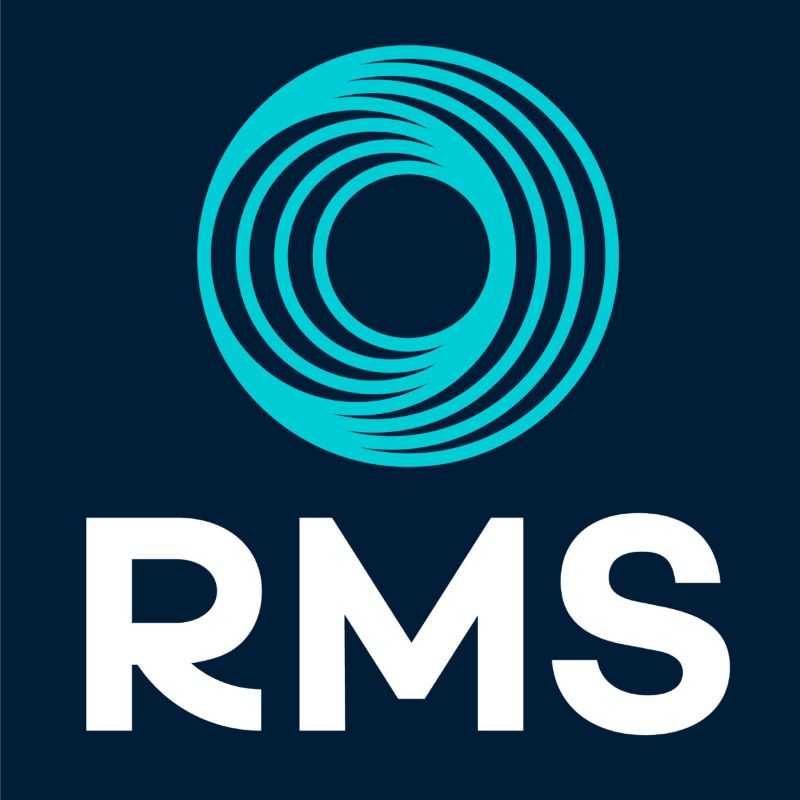
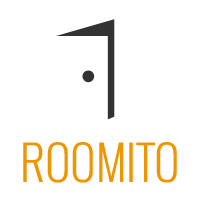







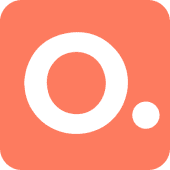

-logo.jpg)

